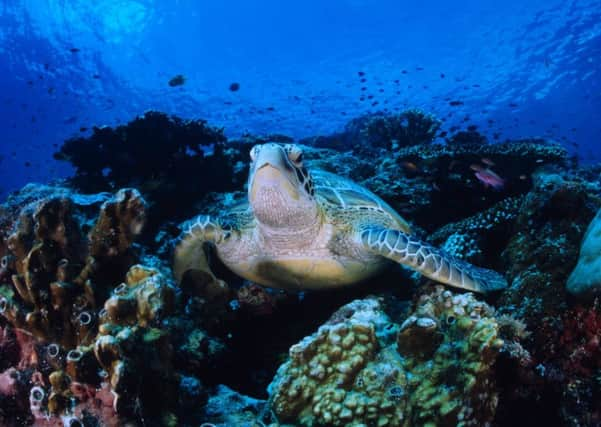Postcode lottery shells out to protect endangered turtles


The Lamu region of Kenya is home to half of all the turtle nests found along the country’s coast, but development of a shipping port, illegal poaching and destructive fishing are threatening their survival.
An initiative set up by international nature charity WWF to protect the creatures was awarded a £245,000 grant from players of the Edinburgh-based People’s Postcode Lottery in 2015. Now the organisation has announced it will hand over a further £500,000 to support and expand work done there.
Advertisement
Hide AdAdvertisement
Hide AdThe joint project works with local communities and conservationists, patrolling coastal waters and nesting beaches, monitoring nests and moving any at risk of flooding.
The scheme also raises awareness of the environmental and cultural importance of turtles, and of freeing them when they get entangled in nets.
The extra funding will enable WWF-Kenya to offer greater support for conservation as well as encouraging new livelihood initiatives such as ecotourism and microfinance, which will reduce financial dependency on unsustainable exploitation of natural resources.
Sea turtles are some of the planet’s most ancient creatures, dating back more than 100 million years to a time when dinosaurs roamed the earth.
Kenyan waters are home to five of the world’s seven species of sea turtle – green, hawksbill, olive ridley, leatherback and loggerhead – all of which are red-listed by the International Union for Conservation of Nature as critically endangered, endangered or vulnerable.
But in spite of enjoying legal protection, turtle populations in Kenya have fallen by more than 80 per cent over the past three decades.
It is estimated that 85 per cent of turtle deaths are caused by human activities, raising fears that these globally important creatures could be wiped out in East Africa in the next 50 years.
Three species nest around Lamu and its surrounding islands, but they are at risk from illegal consumption and trade in their oil and shells, which are believed to have medicinal properties.
Advertisement
Hide AdAdvertisement
Hide AdNesting sites also face destruction through unauthorised development, while feeding grounds are under threat from pollution and intensive fishing.
Another factor is widespread poverty, which drives communities to over-exploit the turtles and their habitat.
Mike Olendo, marine programme co-ordinator for WWF-Kenya, has been working on the project since its outset. This week he visited Scotland to provide an update on progress and thank players of the People’s Postcode Lottery for helping secure a future for the turtles.
Olendo said: “Educating the local communities around these nesting sites on why the survival of marine turtles is so important to the continuing health of the whole marine environment is key to safeguarding their future”.
Olendo also visited Newton Primary School in Dunblane to present children with a hand-crafted model fishing boat made by local people in Lamu to acknowledge the pupils’ fund-raising efforts.